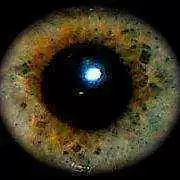-
Welcome to Celiac.com!
You have found your celiac tribe! Join us and ask questions in our forum, share your story, and connect with others.
-
Celiac.com Sponsor (A1):
Celiac.com Sponsor (A1-M):
-
Get Celiac.com Updates:Support Our Content
So what's the dealio with dairy and gluten?
-
Get Celiac.com Updates:Support Celiac.com:
-
Celiac.com Sponsor (A17):
Celiac.com Sponsor (A17):
Celiac.com Sponsors (A17-M):
-
Recent Activity
-
- olivia11 replied to xxnonamexx's topic in Post Diagnosis, Recovery & Treatment of Celiac Disease26
My journey is it gluten or fiber?
This is really helpful I had not considered sugar alcohols or inulin as triggers. Thanks for the practical baking tips too color coding and baking G F first makes a lot of sense. This is really helpful I had not considered sugar alcohols or inulin as triggers. Thanks for the practical baking tips too color coding and baking G F first makes a... -
- olivia11 replied to xxnonamexx's topic in Post Diagnosis, Recovery & Treatment of Celiac Disease26
My journey is it gluten or fiber?
High fiber can definitely cause sudden GI distress especially if it’s a new addition but accidental gluten exposure can feel similar. Keeping a simple food/symptom log and introducing new gluten-free foods one at a time can really help you spot the pattern. This is really helpful I had not considered sugar alcohols or inulin as triggers. Thanks f... -
- olivia11 replied to olivia11's topic in Gluten-Free Foods, Products, Shopping & Medications4
suggest gluten free food
Thanks for asking I’m mainly looking for gluten-free staples and snacks. Any recommendations for brands or go-to items would be appreciated. -
- xxnonamexx replied to xxnonamexx's topic in Post Diagnosis, Recovery & Treatment of Celiac Disease26
My journey is it gluten or fiber?
sorry a bit confused so I should take my B complex along with Objective Nutrients Thiamax for TTFD but what about a Benfotiamine to take. The Life extensions contains Benfotiamine and Thiamine together or im confusing myself. I am trying to see if I take Thiamax what should I take for Benfotiamine. Thanks EDITING after further research I see ones water soluble...




Recommended Posts
Archived
This topic is now archived and is closed to further replies.